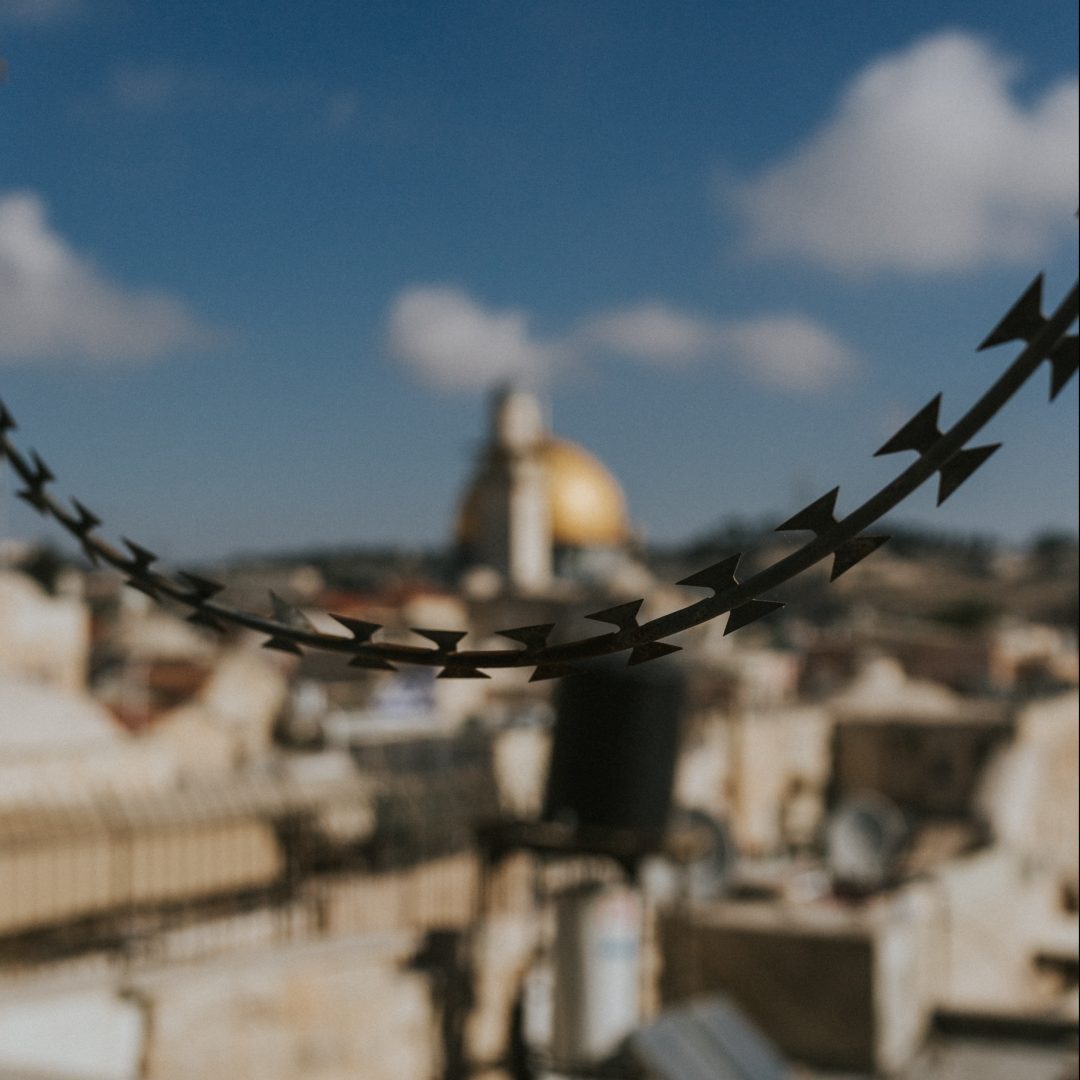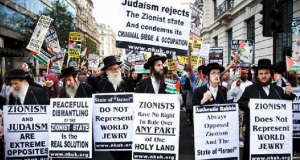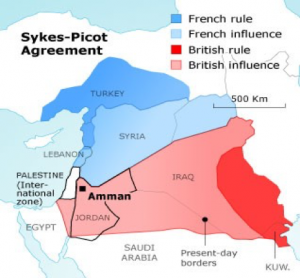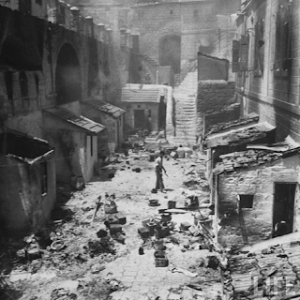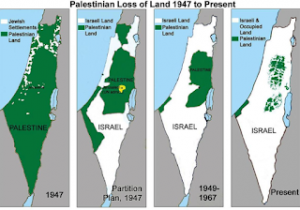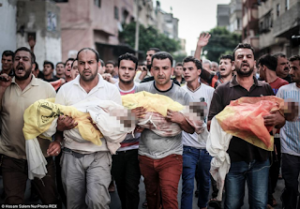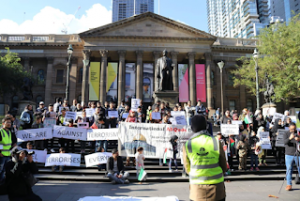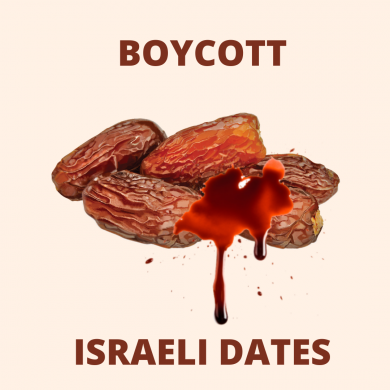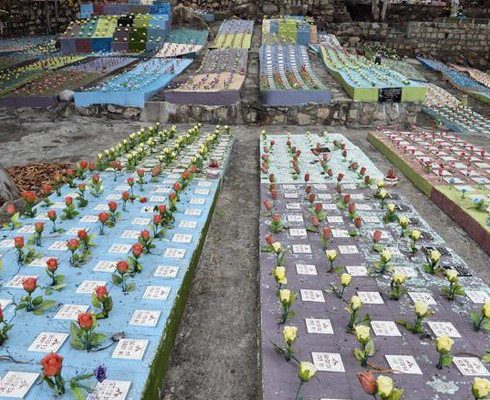The issue of Palestine is one that is always remembered when there is a death in Gaza, or a new bombing campaign by ‘Israel’. We take the immediate news, and move on. What happens through this process is we don’t get the opportunity to read into the history of what events led to the current conditions and which individuals and nations played a part in the annexation of Palestine. With the decline in investigative journalism these days, this is getting even harder. We forget the who, what, where, when and why. This is the reason why we aren’t able to understand or comprehend the severity of the situation in Palestine today. Naturally, when we are unable to understand something, we refrain from speaking about it in fear that we are not informed enough about the topic to hold an opinion. But in this day and age where people in Palestine are being killed in the hundreds, silence is no longer an option.
So how do we solve this? I will attempt to tackle this issue by giving you a brief historical analysis of the Zionist occupation of Palestine. I’ll give you the who, what, where, when and why in hope that it will allow you to better understand the ‘now’ & equip you with the knowledge to speak up for Palestine.
Before I begin I want to define what the word Zionism means, or what it means when someone says they are a Zionists as this is a word that continuously appears when speaking about this issue. In simple terms Zionism is an ideology which believes that Jewish people are entitled to the land of Palestine through God, and any measures necessary to obtain that are valid. It is the conception of a Jewish only state. Zionism is rejected by many Jewish people around the world as they see it in the same way we see ISIS. A foreign ideology that is using the name of religion to further a certain political goal. This is why we see so many Jews attending annual Al-Quds Day rallies around the world.
1880 – The origins of the Zionist project.
In the year 1880, Palestine was under the Ottoman empire with a population of 3,000 Indigenous Jews living in Palestine. It was an era where the Jews, Christians and Muslims lived together as Palestinians in peace and prosperity. However, this was the year when the Zionist project of occupying the land of Palestine began. Wealthy individuals, such asBaron de Rothschild began to purchase lands and assist Jews from around the world to migrate to Palestine. The purpose of these initial moves was to prepare the grounds for the Great Zionist project of occupying Palestine. These slow, secret but powerful migrations would over time increase the Jewish population to the point where they were no longer the minority.
Period of World War 1 – The establishment of ‘Israel’.
The next important era was that of World War 1 (WW1). WW1 went from 1914 to 1918. In this period two major advances were made in the Zionist project. The first one was the 1916 Sykes-Picot agreement, which in simple terms was an agreement where the French and the British divided what was previously the Ottoman Empire into two spheres of influence. The British and the French. The area of Palestine fell under the British Area. This was the beginning of what would be known as the ‘British Mandate’. Where in 1922, the League of Nations would grant Britain control over certain areas of Palestine, in order to advance the goals of the Zionist project. As it can be seen in the map below, the area under ‘British influence’ was the first area to be labelled as ‘Israel’. This validates how integral the British were in the creation of ‘Israel’.
The second advance during the war was the signing of the Balfour Declaration in 1917, which directed the ideals of the British rule in Palestine. It would serve as the blueprint for the British officials that would live in Palestine in 1922 during the British Mandate. The letter stated the British would “use their best endeavours to facilitate the achievement of this object [meaning the creation of a Jewish State]”. It was written by then-Foreign Secretary Arthur James Balfour to Baron Rothschild. This was the same man that began buying land in 1880. The repetition of certain names like that of Rothschild throughout this conflict point to the fact that the creation of ‘Israel’ wasn’t a natural or organic event. It was a planned, systematic and brutal process of taking a people’s nation to house a political ideology.
The Balfour Declaration was the document that signed off the nation of Palestine as a “national home for the Jewish people”. Imagine that, you are living in your home, and a stranger comes knocking on your door telling you to leave your home because the man next door said this home belongs to this man now. You ask them what gave the next-door neighbour that right? Then they show you a piece of paper signed by your next-door neighbour which says that this house now belongs to that man. This was the position of the Palestinians in 1917. The British signed off Palestine, a land of people, culture and history, to make way for the establishment of a Zionist state.
In the background, as these agreements were taking place many Jewish Europeans began moving to Palestine. This began the forced displacement and removal of Palestinians from their homes.
The Nakba – The Catastrophe.
The next date we move onto is 1948. This is said to be the most important date in the history of this brutal occupation. 1948, the year of the Nakba which means ‘Catastrophe’ in Arabic, is the year where more than 700,000 Palestinians became refugees or internally displaced from their own land, more than 400 villages were destroyed, 13,000 people killed and 30,000 injured. Thousands were detained in detention camps with no charge but that of refusing to leave their homes. In the year of 1948, Palestine was uprooted, and its land soaked in the blood of its own people.
The map below shows the loss of Palestinian land from 1947 to present day. As you can see in the image, within a year of the Nakba by May 1949, ‘Israel’ had its grip over 78 per cent of historic Palestine. You can see how much bloodshed, displacement and genocide would have occurred to allow ‘Israel’ to grow into Palestine so rapidly within a year. The Palestinians that remained on the land were either forced to go to West Bank or Gaza. This is why Gaza is made up of people who call themselves internally displaced.
An example of early resistance within Palestine.
People ask, why didn’t they fight back? They did. They fought back heroically but the Zionists were backed by the UK, US, France and many other world powers. Amongst the many stories of heroic resistance, there is a story of Al-Qassam. A man who resisted in the years before the Nakba, while the Palestinian leadership resorted to negotiations with the British.
Click here to watch a video about him.
These people have always resisted and as we are seeing even today they continue to resist and sacrifice their lives to maintain what they have left.
The Six Day War – The Naksa.
Since the Nakba of 1948, Palestinians have been made refugees with no right of return. The ones that remain in Gaza and the West Bank are continuously tortured, harassed and killed without any fear of repercussions. This is the daily life of Palestinians since the Nakba. However, out of the many days of occupation, there are two major tragic dates that are integral to understanding the history of this occupation.
The first is the 1967 war, which is known as the Six-Day war. This war resulted in the ‘Israeli’s’ taking control over the Gaza Strip, Golan Heights, Sinai Peninsula and East Jerusalem. This specific war has a long list of events, and includes the involvement of countries like Syria, Egypt and Jordan, but what I want to highlight for this specific talk is that this war was a ‘setback’ for the Palestinian resistance. Its outcome was that ‘Israel’ tripled in size and increased the building of settlements on occupied territory. That is why they call it ‘Naksa’ – the setback.
2014 Gaza War.
The second major date since the Nakba was the 2014 Gaza War. This tragedy allowed the world to see the brutality of ‘Israel’ at its peak. Social media platforms such as Twitter and Facebook served as a means for the world to witness the Gaza War. Schools were bombed according to the exact time when the school bell rang and children were out in the open in order to increase the casualties, UN hospitals and shelters were bombed, homes were demolished, children were killed with everything from bombs, snipers and tanks. Water and electricity plants were completely destroyed, as a result of this the residents of Gaza are still drinking polluted water and only have an average of 4 hours electricity per day. It was hell on earth. 2,300 civilians were killed, while around 10,000 were injured. This was only 4 years ago!
The Great Return March.
The final and most recent event I will discuss is something that is happening as we speak. The Great Return March. When the Palestinians were forced to flee to either Gaza or the West Bank, they all left their lands, homes and villages behind. Until this day, these people, their children and grandchildren haven’t been able to return. They are refugees within their own country. This year marked 70 years since the Nakba of 1948. To mark this year, the Palestinians within the Gaza strip organised a ‘Great Return March’ which began on the 30th of March. Since that day they have been coming to the ‘so-called borders’ of Gaza in an attempt to return home, as the name suggests. Since the Nakba anniversary, they have been coming every Friday to protest at the ‘border’. Until this day, within 4 months, 129 civilians have been murdered by targeted ‘Israeli’ snipers and 13,000 injured. A few weeks ago, we woke up to 55 people being killed in one day! That’s 55 families ripped apart. Though every death is painful, the recent death of a 21-year old volunteer Nurse called Razan Najjar personally gripped me. A girl the same age as me, so heroically put her life on the line to protect her people. Razan was a nurse in visible medic gear. She was providing medical aid when she was shot in the back. The same day of Razan’s murder, a baby girl was born in Gaza. In the honour and remembrance of Razan the mother of that child decided to name her Razan. This act of love and resistance showed quite literally, when one Razan dies another will always be born.
When looking at the deaths like that of Razan, we see that the genocide and occupation that began in 1880 has not ended, and in many forms only increased. But at the same time so has the resistance and determination of the Palestinian people. Therefore, it is our duty to also work to further increase our solidarity to this cause. If you are someone who follows politics closely, the events, tensions and debates happening today in the ‘Middle East’ region all suggest that the days of ‘Israel’ are coming to an end. Political experts and scholar have said this, and the trends are showing it. The liberation of Palestine will undoubtedly happen soon, so we need to keep ourselves equipped with the knowledge, motivation and spirit to take this struggle to the finish line with the leadership of the Palestinian people.
In the Quran (Surah Isra, Ayat 81) Allah (s) has promised us that, “Falsehood is bound to vanish”. So if we know that the days of the Zionist as the oppressors will end someday, and we know that the side of justice and truth will prevail and be victorious. The question then remains, what role will we play in that victory? When the free people of the world are celebrating the victory of truth and justice, will our actions today give us a right to celebrate alongside them?
Today, through this talk we learned about history, something that isn’t always exciting or overly interactive, but this is our duty. It is our duty to understand the crimes of the oppressor, the crimes of the Yazid of our time so we can call him out. So we understand the suffering of our fellow Muslims. So we understand the privilege we have to protest and come back home safe. So we understand where our duty as awaitors of the justice of Imam Mahdi (a) lies.
Every year on the last Friday of Ramadhan we mark Quds Day. A day initiated by the leader of the Islamic Revolution. He put this day aside for the issue of Quds, a day against Zionism and all oppression taking place around the world. I don’t have time to go in-depth today, but we are all aware that Baytul Muqaddas, the first Qiblah of all Muslims, the mosque where Prophet Muhammad (pbuh) went on Miraj, where Imam Mahdi (a) is said to govern from for some years, is in Jerusalem. Against international law and against the sacred value this mosque holds for all religions, this year ‘Israel’ declared Jerusalem as its capital. It symbolically took control over the holy mosque of Al-Aqsa. Does that not bother us? That such a historic and religious site is in the hands of the most oppressive forced of the world.
In Melbourne we had another successful event this year, but we need more people to come out. We need you all to encourage our families, children, brother, sisters and parents to come out to annual Quds events and any other rally organised for Palestine. We are here today in a gathering of women. Women play such a major role in resisting injustice and fighting the oppressors. We have the famous example of the revolutionary, defiant and fearless personality of Sayyidah Zainab. She stood in the courtyard of the man who had oppressed her and her family, the man who had ordered the beheadings of her two children, brother and nephews. Whereas we are here sitting miles across from the frontlines, then what excuse do we have to not come out to protests and other events.
Even if one historic event, image or fact throughout this talk today enraged you, I ask you to give air to that fire within you. Let it fill you with rage, and use that rage to stand against the Zionist forces. Use that rage to stand with the people of Palestine. Inshallah within our time we will not only see a liberated Baytul Muqaddus but we will see that liberation of all lands and the eradication of all injustice with the ever-close reappearance of our Imam, Mohammad al-Mahdi (a).
**This article uses the word ‘Israel’ only for the purposes of assisting people to identify and associate the crimes mentioned with this so-called state. However, we do not recognise ‘Israel’ as a state, therefore encourage people to use words such as ‘Zionist entity’ instead. As it was the case for this article, if mentioning the name is required for exposing Zionist crimes to an audience not familiar with this issue then using quotation marks around ‘Israel’ should at least be used to delegitimise it.
By Kinza Abbas
The above is a revised section of a speech given at Ladies as Leaders’ Palestine event on Saturday 30th June 2018.


